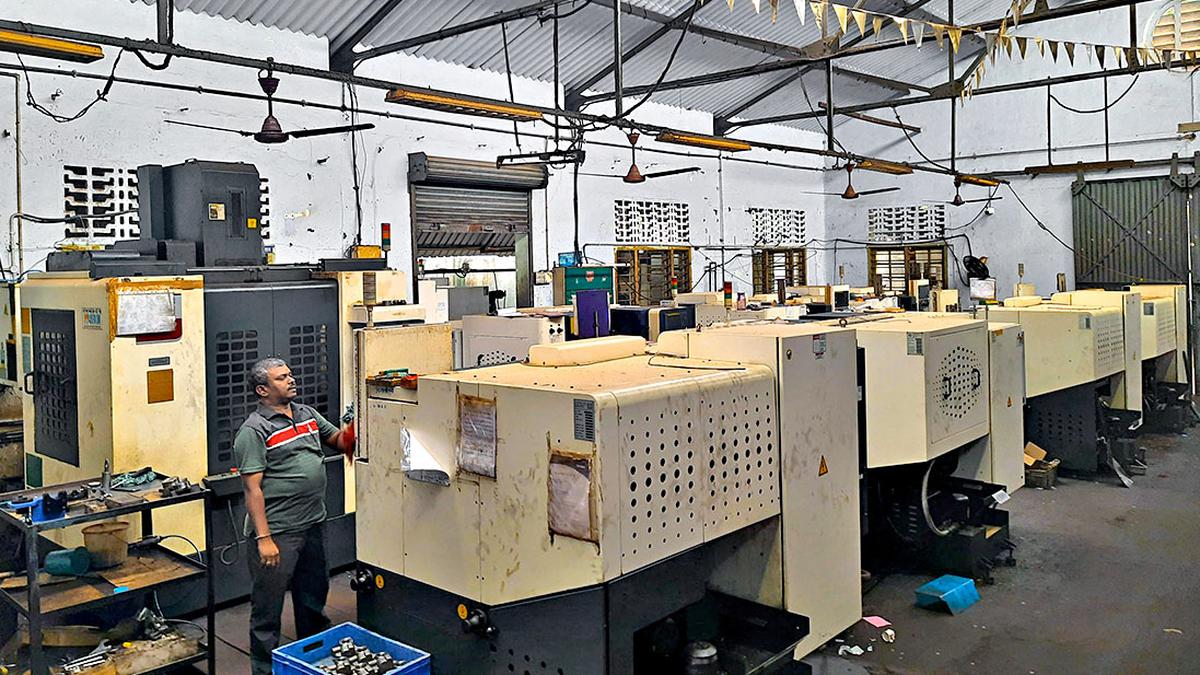
The never-ending woes of MSMEs in Tamil Nadu
The Hindu
MSMEs in Tamil Nadu demand government support for relief, infrastructure, and taxation reforms to revive the struggling sector.
The Micro, Small and Medium Enterprises (MSMEs) across Tamil Nadu have made their suggestions to the Central and State governments ahead the Lok Sabha election. This sector, the backbone of the big industries, has suffered several blows in the last decade — the 2015 Chennai floods that wiped out many businesses and kept many others for months to revive; the demonetisation of the ₹500 and ₹1,000 currency notes; the GST roll-out; and the COVID-19 pandemic. The more recent crisis they faced was Cyclone Michaung.
C.K. Mohan, president, Tamilnadu Small and Tiny Industries Association (Tanstia), says, “Tanstia has been neglected for years without representation on the National Board for Micro, Small, and Medium Enterprises. We request to be included in the Board to voice the grievances of these units.” He adds that in Tamil Nadu, the database pertaining to the manufacturing industries is not correct. This issue must be looked into. He suggests that the government create a database (of the industries having power connection) with the help of the Tamil Nadu Generation and Distribution Corporation Limited. “Tanstia can do this, if funds are allocated,” he says.
Citing the impact of the recent floods in the southern districts and Cyclone Michaung in Chennai and surrounding areas, the heads of the MSMEs across the State have demanded that they be considered for relief from the National Disaster Response Fund.
The Ambattur Industrial Estate Manufacturers Association (AIEMA), which represents over 2,000 units, has demanded a permanent solution to the inundation of the North Phase of the estate during the rains. AIEMA president G. Aravind says, “Our members are unable to expand their businesses because of the lack of land. We request the government to form a new industrial estate on 1,500 acres to help these units grow. They will in turn help to meet the future demand for industrialisation that will prompt the big companies to invest in Tamil Nadu.”
The MSMEs in Coimbatore have started submitting their demands to the election candidates. Their main problem is taxation. It is not only the slowdown in orders or the high raw material prices but also the taxation policies that are affecting business, they say. “We need ease of doing business in day-to-day activities,” says V. Thirugnanam, president, Coimbatore District Small Industries Association. One of their main demands is a reduction in the GST for job-working units. It should be in the minimum slab of 5%. Further, the 90-day limit for classifying loans overdue from the MSMEs into non-performing assets should be extended to 180 days.
Coimbatore’s economic backbone are the MSMEs and they need specific infrastructure support. They face complaints from local residents and high taxes from the civic body. The MSMEs also demand investment from large-scale industries, mainly in the emerging sectors. This will help to revive component and job work orders for the smaller units.
The Kakkalur Industrial Estate at Tiruvallur, one of the oldest in Tamil Nadu, has always been suffering from issues of infrastructure. K. Baskaran, secretary, Kakkalur Industrial Estate Manufacturers Association, says the estate faces flooding every monsoon. The MSMEs in the southern Tamil Nadu complain that many industrial estates lack proper roads and infrastructure even today.













